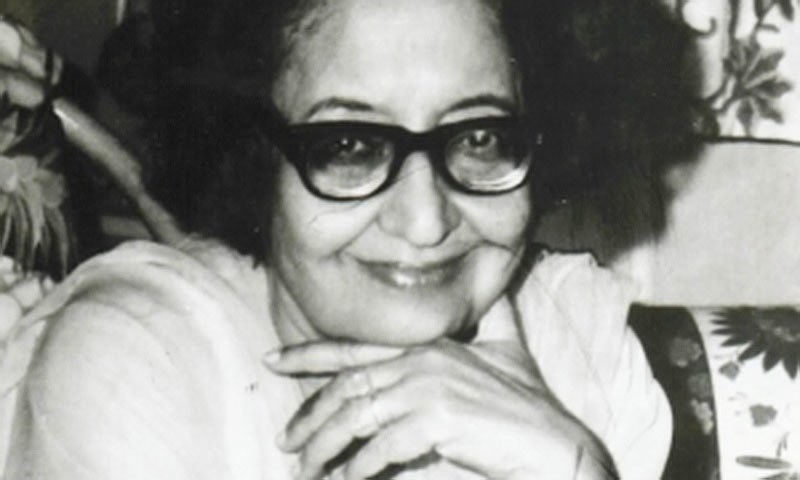
kar raha tha gham-e-jahan ka hisab
aaj tum yaad behisab aaiye.
—Faiz Ahmad Faiz
As the list of all that is despairing in the world gets longer, Qurratulain Hyder is remembered today like never before.
It is on August 21 that this Urdu novelist and short story writer passed away at the age of 80 years, exactly a decade ago.
Affectionately called Annie Apa, she was in love with the composite Indo-Muslim culture practiced all over the Gangetic plains and it pained her to watch this inclusive way of life crumble away, first after Partition and now in the face of divisive politics encouraged in the country much of which she was witness to.
This Grande Dame of Urdu Literature had constantly complained of how culture was being converted today into a political problem. Once she had snapped that there was a time when people were embarrassed to display religious zeal unlike in this day and age.
Similar concerns abound in Annie Apa’s prolific work. She has left behind at least a dozen novels and many short stories that wonder what next after the inclusive humanity and lush social fabric in this part of the world vanishes?
One such novel is Chandni Begum written in 1989 in Lucknow, considered by her a paradise amongst cities. Annie Apa loved Lucknow. Although born in Aligarh in 1927, she spent time in Lucknow as a student. She visited the city through her life, and returned to live here in the 1980s to research and to write Chandni Begum, her last novel.
In the mind of the author, Lucknow was this ideal world where the fate of all citizens irrespective of their social and religious background was once upon a time woven together in a most romantic, as well as a practical way.
The ethos of the city was disturbed by historical realities like the end of feudalism, rapid industrialization and the partition of India in 1947.
In Chandi Begum the author tries to imagine the feelings of Muslim families still living in Lucknow after 1947. Annie Apa had a great feel for the music and poetry found in such abundance in local speech. The oddities of ordinary citizens inspired her most and she captures it all, including individual eccentricities vividly in her writing.
Now there is an English translation of Chandni Begum that was launched a few days ago in Lucknow. Thanks to historian Saleem Kidwai whose translation is as sparkling as the original, Chandni Begum can be visited by non-Urdu knowing readers as well.
However there is a snag.
The world knows how Annie Apa had disliked translators and liked to translate her writings in Urdu herself. In fact she forbade anyone who wanted to translate her work during her lifetime. The only exception was CM Naim. Professor Emeritus at the University of Chicago who translated two short novels and a story into English titled A Season of Betrayal. This lone translation by Professor Naim is accompanied by colourful whisperings regarding the many difficulties posed by Annie Apa as the professor tried to translate her writing.
Annie Apa did not approve of translators because she felt she alone was capable of translating her writing. She was the only one who was allowed freedom to translate, or to re write as she was most familiar with the spirit of her own original work. Besides, Annie Apa seems to have simply enjoyed revisiting her writings to translate, to re -read and to rewrite things differently. She even wrote several versions of the same work when she felt like doing so.
Saleem Kidwai was aware of Annie Apa’s reservations and says that he would not have dared to even think of translating Chandni Begum during the lifetime of the author. He has his own reasons for choosing to work on Chandni Begum for over two years. The novel attracts him because it is about Lucknow, a city that Kidwai loves as passionately as perhaps Annie Apa did. Also because this was the last book his mother had read before she passed away.
Ever since Kidwai picked up the copy of Chandni Begum from the bedside table of his late mother. The story haunted him for a multiple reasons but he could do little with the special relationship that he had developed with Chandni Begum so long as Annie Apa was alive.
Whatever the reason, readers are delighted to own this fine translation of the book that is as mesmerizing in its English translation as the original Urdu.
And knowing Annie Apa’s appreciation of creativity, she too would have surely applauded Saleem Kidwai effort. Although a little reluctantly perhaps.
Chandni Begum by Qurratulain Hyder, English translation by Saleem Kidwai is published by Women Unlimited, 2017.




